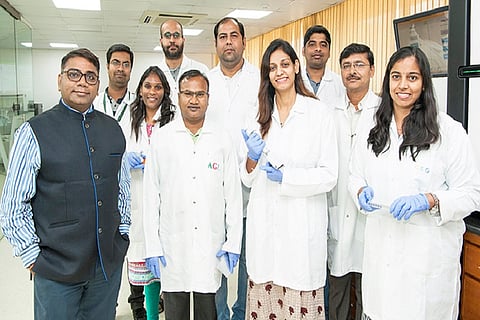

Scientists from 21 research institutes around the world have successfully completed genome sequencing of 429 chickpea lines from 45 countries, in an endeavour to identify the genes that are tolerant to drought and heat.
The study also mapped the origins of the chickpea and how it spread across Asia and Africa.
The team was led by the International Crops Research Institute for the Semi-Arid Tropics (ICRISAT) in close collaboration with the BGI-Shenzhen, China, and involved 39 scientists from leading research institutes the world over. This is the largest-ever exercise of whole-genome re-sequencing of chickpea.
For the agricultural community, this means a potential development of newer varieties of chickpea with higher yields, which are disease-and-pest-resistant, and better able to withstand the vagaries of weather, said ICRISAT in its release.
The results of the three-year-long efforts have now been published in Nature Genetics online with the title, ‘Resequencing of 429 chickpea accessions from 45 countries provides insights into genome diversity, domestication and agronomic traits’.
More than 90% of chickpea cultivation area is in south Asia. Drought and increasing temperatures are said to cause more than 70% yield loss in chickpea globally. Chickpea being a cool season crop is likely to suffer a further reduction in productivity due to rising temperatures.
“The genome-wide association studies identified several candidate genes for 13 agronomic traits. For example, we could identify genes which can help the crop tolerate temperatures up to 38 degree Celsius and provide higher productivity,” said Dr Rajeev Varshney, the project leader and Research Program Director, Genetic Gains, ICRISAT.
The research will help develop chickpeas that are climate-resistant. “This new found knowledge will enable breeders to enhance the use of diverse germplasm and candidate genes in developing improved (Climate-change ready) varieties that will contribute significantly to the increased productivity and sustainability of agricultural development in developing countries,” said Dr Peter Carberry, Director General, ICRISAT.
The study was done in close collaboration with partners from the National Agricultural Research Systems. India is the biggest consumer of pulses in the world but faces increasing demand-supply gap. This new research could take India closer towards attaining self-sufficiency in pulse production.